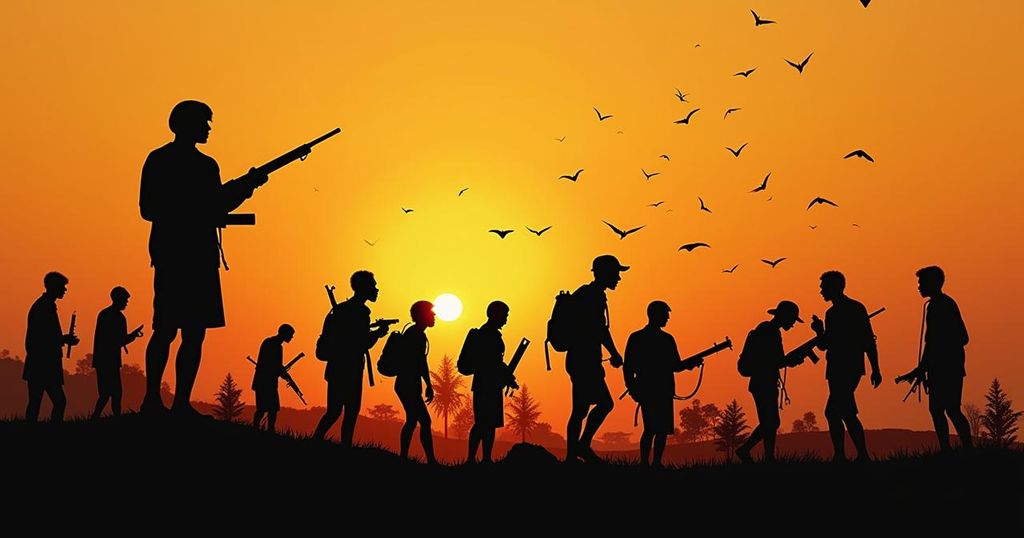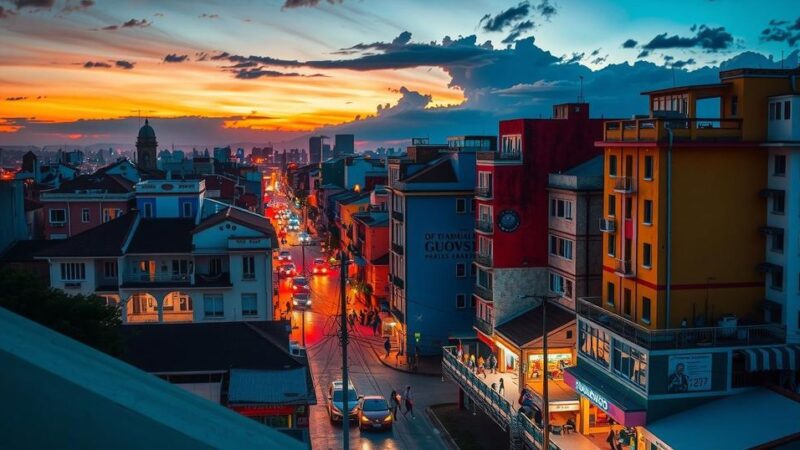Mozambique is preparing for elections on October 9, 2024, amid a jihadist insurgency and severe drought-induced hunger. Around 17 million voters will select a new president, with candidates focusing on security and socioeconomic reforms. Concerns linger regarding electoral integrity following past local elections marred by fraud allegations. The next president will face significant challenges, influenced by ongoing violence and the need for humanitarian support.
Mozambique is poised for pivotal elections on Wednesday, October 9, 2024, amid significant challenges including a jihadist insurgency that has plagued the northern province of Cabo Delgado for nearly seven years and widespread hunger exacerbated by severe drought conditions. Nearly 17 million voters will cast their ballots for a new president, as the incumbent, Filipe Nyusi, is ineligible to run for a third consecutive term. The electoral campaign, which concluded on Sunday, saw leading candidates prioritizing the restoration of peace in Cabo Delgado, though specific plans to address the ongoing violence have yet to be detailed. The insurgency, linked to the Islamic State, has resulted in numerous fatalities and the displacement of approximately 1.3 million individuals. The presidential candidate for the ruling Front for the Liberation of Mozambique (Frelimo), Daniel Chapo, emphasized the necessity of peace for the region’s infrastructure development. Meanwhile, Lutero Simango from the Democratic Movement of Mozambique focused on addressing health, employment, and poverty issues, and independent candidate Venacio Mondlane promised an aggressive stance against terrorism and violence within a year of taking office. The elections are critical as they follow recent troubling local elections marked by allegations of fraud and voter intimidation, raising concerns about the electoral process’s integrity. The Southern African Development Community has deployed a delegation of observers to oversee the elections, advocating for fair practices. As reflected by analysts, the next president will inherit a complicated landscape, characterized by challenges stemming from ongoing violence and socio-economic hardships.
The backdrop of the elections in Mozambique is a combination of armed conflict and a humanitarian crisis. The jihadist insurgency in Cabo Delgado has resulted in widespread violence and displacement, with communities struggling to rebuild. These conditions are further exacerbated by droughts linked to climate change, leading to food insecurity for millions. The political climate is also influenced by past corruption scandals involving the ruling party, which prompt calls for accountability and reform among the electorate.
In conclusion, Mozambique’s upcoming elections present both a critical opportunity for political change and a significant risk due to the prevailing violence and humanitarian crises. The candidates’ commitments to addressing security and socioeconomic issues will be essential in determining the electorate’s choice. The political environment remains fraught with challenges, particularly regarding the integrity of the electoral process and the pressing needs of the population.
Original Source: apnews.com






